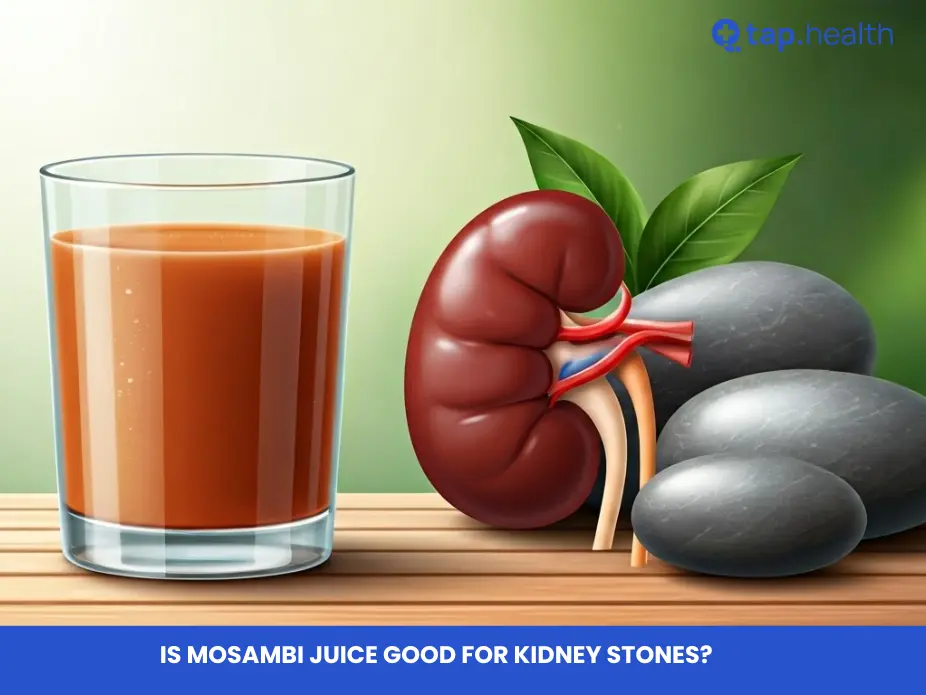Table of Contents
- Corticosteroids and Blood Sugar: A Diabetic’s Guide
- How Dental Corticosteroids Impact Blood Glucose Levels
- Understanding the Link Between Steroids and Diabetes
- Managing Blood Sugar After Dental Corticosteroid Use
- Dental Corticosteroids: Effects on Glucose and Diabetes Management
- Frequently Asked Questions
- References
Managing diabetes requires a delicate balance, and sometimes even seemingly minor treatments can impact your blood sugar levels. This is especially true when considering dental procedures. Have you ever wondered about the effects of common dental medications on your blood glucose? This blog post will explore Understanding How Corticosteroids (Dental Route) Affect Blood Sugar in Diabetes, providing you with crucial information to discuss with your dentist and endocrinologist. We’ll delve into the mechanisms behind these effects and offer practical tips for managing your blood sugar during and after dental treatments involving corticosteroids. Let’s get started!
Corticosteroids and Blood Sugar: A Diabetic’s Guide
Managing diabetes in tropical climates like those prevalent in India presents unique challenges. One significant factor impacting blood sugar control is the use of corticosteroids, often prescribed for dental procedures like extractions or gum disease. Understanding how these medications affect your blood sugar is crucial for preventing dangerous spikes. Corticosteroids, powerful anti-inflammatory drugs, can significantly raise blood glucose levels. This happens because they interfere with insulin’s ability to lower blood sugar, essentially creating insulin resistance.
The Impact of Corticosteroids on Blood Sugar
Even a short course of corticosteroids for dental reasons can disrupt your carefully managed blood sugar levels. The effect varies depending on the dosage and the individual, but expect elevated blood glucose readings. This is particularly important for individuals already struggling to maintain optimal blood sugar control. Remember, maintaining a balanced diet remains key. For most people with diabetes, a balanced meal plan, which may include approximately 45–60 grams of carbohydrates per meal (depending on individual needs), is suggested. However, during corticosteroid use, you may need to adjust your carbohydrate intake and insulin dosage under the guidance of your doctor or diabetologist. This is especially important to consider alongside other health factors, such as managing your cholesterol. You might find our article on How to Manage Cholesterol Levels with Diabetes? helpful.
Managing Blood Sugar While on Corticosteroids
Regular blood glucose monitoring is essential when taking corticosteroids. Consult your doctor or diabetes specialist immediately if you notice significantly elevated blood sugar levels. They may recommend adjusting your medication regimen, including insulin or oral hypoglycemics. Increased monitoring and potential adjustments to your diet are necessary to minimize the impact of corticosteroids on your blood sugar.
Seeking Expert Advice in India and Tropical Regions
In India and other tropical countries, access to healthcare professionals specializing in diabetes management is vital. Don’t hesitate to reach out to your doctor or diabetologist before and after any dental procedure involving corticosteroids to discuss a personalized management plan. Proactive communication and careful monitoring are your best defenses against uncontrolled blood sugar levels. Early intervention can help prevent serious complications. Before starting any corticosteroid treatment, it’s crucial to understand the potential effects. Learn more by reading our article, Can Diabetics Take Oral Steroids? What You Need to Know.
How Dental Corticosteroids Impact Blood Glucose Levels
Diabetes significantly impacts oral health, and conversely, dental procedures can affect blood sugar control. Nearly 15% of diabetics experience foot ulcers in their lifetime, highlighting the crucial link between overall health and oral hygiene. This underscores the importance of understanding how seemingly minor dental interventions, such as the use of corticosteroids, can influence blood glucose levels, especially in high-risk populations prevalent in Indian and tropical countries.
Understanding the Impact
Corticosteroids, often used in dentistry for procedures like tooth extractions or gum treatments, are potent anti-inflammatory drugs. However, a significant side effect is their impact on blood sugar. They can raise blood glucose levels, potentially leading to hyperglycemia, especially in individuals already managing diabetes. This effect is because corticosteroids interfere with insulin’s ability to regulate blood sugar, resulting in increased glucose production in the liver and reduced glucose uptake by cells.
Managing Blood Sugar After Dental Corticosteroid Use
For diabetics in India and other tropical regions, where access to specialized care might be limited, proactive management is essential. After dental procedures involving corticosteroids, closely monitor your blood sugar levels more frequently than usual. Consult your dentist and physician beforehand about your diabetes management plan and discuss the potential impact of the corticosteroid treatment. Maintaining a balanced diet and regular exercise are crucial for mitigating the effects of elevated blood glucose. Regular foot care is also paramount given the elevated risk of foot ulcers in diabetic patients. Understanding how to maintain healthy Blood Sugar Levels is crucial for managing this risk.
Seeking Professional Advice
It’s crucial to discuss any concerns regarding dental procedures and diabetes with both your dentist and your diabetologist. They can work together to create a comprehensive plan to minimize the risk of complications. Don’t hesitate to seek clarification on potential side effects and post-procedure care. Proactive management can help ensure optimal oral and overall health. Remember, as highlighted in our article, Why Oral Health Matters for Diabetic Patients, maintaining good oral hygiene is inextricably linked to overall diabetic health.
Understanding the Link Between Steroids and Diabetes
Diabetes affects a significant portion of the global population, with 61% of those diagnosed falling between the ages of 20 and 64, and a further 39% aged 65 and above. This is particularly relevant in Indian and tropical countries, where diabetes prevalence is often high. Within this context, understanding the impact of corticosteroids, especially those administered via the dental route, on blood sugar control is crucial.
Corticosteroids and Blood Sugar: The Mechanism
Corticosteroids, powerful anti-inflammatory drugs, can significantly impact blood sugar levels. They achieve this by influencing several metabolic processes. Essentially, they can increase glucose production in the liver, reduce the body’s sensitivity to insulin (insulin resistance), and even promote the breakdown of fats and proteins, all of which lead to elevated blood glucose. This effect is seen regardless of the administration route, including dental applications. For individuals with diabetes, this means a heightened risk of hyperglycemia (high blood sugar), potentially leading to serious complications.
Dental Procedures and Diabetes Management: Practical Considerations
Patients with diabetes undergoing dental procedures involving corticosteroids should be especially vigilant about their blood glucose monitoring. Regular blood sugar checks are essential, especially in the days following the procedure. Close communication with both the dentist and the diabetologist is crucial for managing potential blood sugar fluctuations. Consider discussing alternative treatment options with your dentist if you have concerns about the use of corticosteroids. In tropical climates, where diabetes prevalence is often higher, this proactive approach to managing blood sugar is even more critical.
Taking Control: Regional Advice for Diabetes Management
Individuals with diabetes in India and other tropical countries need to be particularly aware of these interactions. If you are diabetic and require dental treatment involving corticosteroids, ensure open communication with your healthcare team to minimize the risk of complications and maintain optimal blood sugar control. Regular check-ups and adherence to your prescribed diabetes management plan are also vital. Proactive management is key to preventing severe health consequences. Understanding the link between diabetes and obesity is also crucial, as obesity is a major risk factor for developing type 2 diabetes. Furthermore, it’s important to consider how stress hormones affect diabetes, as stress can exacerbate blood sugar control.
Managing Blood Sugar After Dental Corticosteroid Use
Dental procedures sometimes necessitate corticosteroids, powerful anti-inflammatory medications. However, for individuals with diabetes prevalent in Indian and tropical countries, this can pose a challenge. Corticosteroids can significantly raise blood sugar levels, potentially leading to hyperglycemia, a dangerous condition characterized by elevated blood glucose. This effect is particularly important to manage given that ideal blood pressure for diabetic individuals in India, as per some guidelines, should ideally be below 130/80 mmHg, although targets below 140/90 mmHg are also widely accepted.
Understanding the Impact
The rise in blood sugar is due to corticosteroids’ interference with insulin’s function. They can promote glucose production in the liver and reduce the body’s sensitivity to insulin. This impact can be substantial, particularly with higher doses or longer durations of corticosteroid use. Patients with pre-existing diabetes are at higher risk of experiencing severe hyperglycemia. Individuals in tropical climates might be more susceptible due to pre-existing health conditions and varying dietary habits.
Practical Management Strategies
Monitoring is key. Frequent blood glucose checks, especially in the days following dental procedures involving corticosteroids, are crucial. Adjusting insulin dosages or medication, as advised by your doctor, is essential to manage the elevated blood sugar. Dietary adjustments, such as consuming smaller, more frequent meals with a focus on low glycemic index foods, can also help. Consult your physician or an endocrinologist for personalized guidance on managing your blood sugar levels before, during, and after any dental procedures involving corticosteroids.
Seeking Expert Advice in India and Tropical Regions
Given the increased susceptibility to complications in tropical climates and the high prevalence of diabetes in India, it is imperative to consult your doctor before undergoing any dental procedure if you have diabetes. Open communication about your diabetes management plan and potential interactions with corticosteroids will help ensure a safe and effective treatment. Don’t hesitate to seek advice from your physician or a diabetes specialist for personalized strategies to manage your blood sugar levels following dental corticosteroid use. Understanding what constitutes a normal blood sugar level is also crucial. For instance, Is a 100 mg/dL Blood Sugar Level Normal? Comprehensive Guide can provide valuable insights. It’s also important to note that other medications, such as antibiotics, can also impact blood sugar levels. For more information, read our article on Do Antibiotics Increase Blood Sugar? | Comprehensive Guide.
Dental Corticosteroids: Effects on Glucose and Diabetes Management
Dental procedures sometimes necessitate the use of corticosteroids, powerful anti-inflammatory drugs. However, for individuals with diabetes, particularly prevalent in India and other tropical countries, understanding the potential impact on blood sugar levels is crucial. The use of corticosteroids, even via the dental route, can lead to a temporary increase in blood glucose levels, a phenomenon known as hyperglycemia. This is because corticosteroids interfere with insulin’s ability to regulate blood sugar effectively. This effect can be particularly problematic for individuals already struggling to manage their diabetes.
Understanding the Risks
The elevation in blood sugar can be significant, especially in those poorly controlled diabetes. This temporary hyperglycemia can exacerbate existing diabetic complications. Importantly, nearly 30% of people with diabetes develop diabetic nephropathy (kidney disease), and uncontrolled blood sugar significantly worsens this condition. Therefore, careful monitoring of blood glucose levels is essential following dental procedures involving corticosteroids. The risk is further amplified in individuals with existing kidney issues.
Managing Blood Sugar After Dental Corticosteroid Use
Patients with diabetes should openly discuss their condition with their dentist before any procedure involving corticosteroids. Open communication is critical to ensuring the safest approach. Following the procedure, regular blood glucose monitoring is recommended. Consult your physician or diabetologist for advice on adjusting your diabetes medication or insulin regimen if needed, especially given the increased risk in regions with high rates of diabetes like India. Prompt management can minimize the impact of these temporary glucose fluctuations and prevent long-term complications. Remember, proactive monitoring and effective communication are key to maintaining good diabetic health. For further information on managing diabetes through diet, you might find our article on Safe and Effective Dietary Supplements for Diabetes Care helpful. Additionally, understanding the role of gut health can be beneficial, as detailed in our blog on Enhance Gut Health and Manage Diabetes with Prebiotics and Probiotics.
Frequently Asked Questions
Q1. How do corticosteroids used in dental procedures affect my blood sugar?
Corticosteroids, often used in dental work, can significantly increase blood sugar levels, mainly by disrupting insulin function and boosting glucose production in the body. This effect is particularly important for people with diabetes.
Q2. What should I do if I have diabetes and need a dental procedure involving corticosteroids?
It’s crucial to inform your doctor and dentist beforehand about your diabetes. They can then work together to create a personalized plan involving increased blood sugar monitoring and potential adjustments to your diabetes medication and diet to minimize the risk of high blood sugar.
Q3. Why is it important to discuss corticosteroid use with my doctor and dentist before a dental procedure?
Proactive communication allows for a personalized management plan to be developed. This plan helps mitigate the risk of hyperglycemia (high blood sugar) and its complications. Ignoring this interaction can worsen existing diabetic complications.
Q4. What are the potential risks of not managing my blood sugar properly during and after a dental procedure involving corticosteroids?
Failing to manage blood sugar levels effectively can lead to hyperglycemia, which can exacerbate existing diabetic complications and cause other health problems. Careful monitoring and adjustments to medication and diet are essential.
Q5. Are there specific populations more at risk from the effects of corticosteroids on blood sugar?
People with diabetes in regions like India and other tropical areas may be more commonly affected. However, anyone with diabetes undergoing a procedure involving corticosteroids should take precautions and communicate with their healthcare providers.
References
- A Practical Guide to Integrated Type 2 Diabetes Care: https://www.hse.ie/eng/services/list/2/primarycare/east-coast-diabetes-service/management-of-type-2-diabetes/diabetes-and-pregnancy/icgp-guide-to-integrated-type-2.pdf
- Children with Diabetes : A resourse guide for families and school. : https://www.health.ny.gov/publications/0944.pdf



